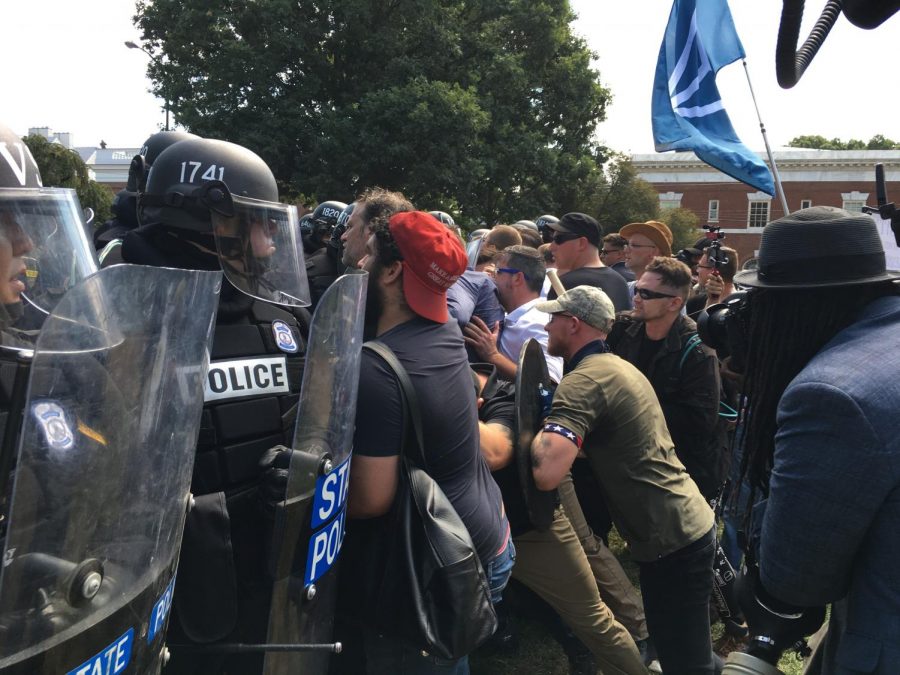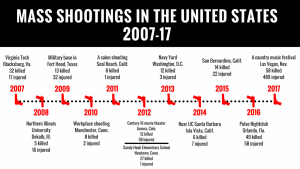OPINION: Don’t punch people in the face, even if they’re a Nazi
Evan Nesterak / CC BY
White nationalists clashed with police officers during the “Unite the Right” rally in Charlottesville on Aug. 13. The first step to resist this movement is to learn the sociological forces that lead people to similar extreme ideologies.
November 29, 2017
Not too long ago, a protester punched self-proclaimed alt-right leader Richard Spencer in the face before he returned to his cave — or wherever modern day trolls reside — never again to spew his racist ideology.
Oh, wait! Spencer never actually left the spotlight. Maybe violence against members of the alt-right is not the best way to go about resisting the white supremacy movement that has been picking up steam since President Donald Trump took office.
Supporters of violent protests seem to often argue that those who don’t agree with their methods are Nazi sympathizers. The problem with this line of thinking is that it enforces the “us versus them” doctrine that white supremacist groups use to bring more followers to into the fold.
The Associated Press reported 26 European nations banned Spencer from entering. Imagine how potentially influential an individual must be for that many countries to decide that it was too dangerous for them to be allowed in.
While barring people with whom we disagree from speaking might feel like a good idea,, it does not address why people are flocking to public figures such as Spencer in the first place. Spencer’s rhetoric is not special by any means, and excluding him will only force his followers to look elsewhere to continue spreading his views.
In order to combat this hateful ideology, we need to address the social and political forces that drive people to these groups.
Sociologist Arlie Hochschild wrote in her book, “Strangers in Their Own Land,” that Americans who fall into the far-right feel like their country has left them behind.
Punching them in the face does not address these concerns. All this does is encourage people to entrench themselves further into these fringe groups.
Linguist and political activist Noam Chomsky said “when confrontation shifts to the arena of violence, it’s the toughest and most brutal who win.”
We know from past experience which side’s people are the toughest and most brutal. They are the ones who run counter-protesters over and make thoughtless jokes that people are glad when one of them is killed.
These actions, among others, are disgusting and should not be imitated. If the violent ideologies of the alt-right prevail, they will have won this battle of what has the potential to become a larger-scale cultural war. If we, as a society, say it is appropriate to follow this mindset when attempting to affect change in our society, we cannot claim to be any better than them.
It is not only important to peacefully confront the Spencers of the world to let them know their rhetoric is vile, but it is also important to be involved with the political process so that he or his ilk do not hold any real power.
The United States has a long history believing violence, or the threat of violence, is the solution to almost every problem. How else could you explain the number of wars this country fought in and the number of U.S. military bases around the world?
If we want to change the narrative of the United States existing as an imperialistic empire, we need to come up with more effective methods for solving conflicts, especially if we want to see a society in which violence is no longer the default option.
































































































































